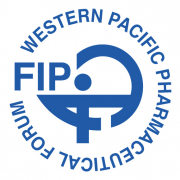Explainer: why are off-label medicines prescribed?

The off-label use of medicines is not illegal and it doesn’t mean regulators have specifically “disapproved” its use. But there are a number of issues to consider before using a medicine off-label.
Before prescription medicines can be used in Australia, the drug company must apply for approval from the government-run Therapeutic Goods Administration (TGA). The same goes for the Food and Drug Administration in the United States, the European Medicines Agency in the European Union, and similar agencies elsewhere in the world.
The drug company has to specify the health conditions the medicine will be used for (also called “indications”), the doses, the routes of administration (tablet, injection, lotion, for instance) and the types of patients who will use the medicine (adults or children).
The drug company has to provide the TGA with evidence to support the use of the medicine in this way, including clinical trial data. The TGA then evaluates this evidence. If it supports the request, the medicine will be approved for use as requested in the application.
If a prescription medicine is used for a different reason, at a different dose or route of administration, or in different patient groups from those approved by the TGA, then this is referred to as “off-label” use.
You might have heard that there are concerns about people using antipsychotic medicines off-label, for instance, to help with sleeping problems or anxiety.
Why are medicines prescribed off-label?
Doctors should prescribe medicines off-label only when there are no suitable TGA-approved medicines to treat a patient. There also needs to be evidence to show the medicine is safe and effective for the off-label patient groups or conditions.
Evidence to support use of a medicine for a new indication or in different patient groups often becomes available years after a medicine is first approved. To change the TGA approval to reflect such evidence, the drug company needs to make an application for approval for these new uses.
The TGA approval process is expensive and it may not be in the commercial interests of the drug company to pay the fees to extend the listing, especially for older medicines.
Medicines are also frequently used off-label in groups of patients who weren’t included in clinical trials for the medicine. This includes children, pregnant women and people receiving palliative care, who are usually excluded from clinical trials. Off-label use of medicines is also common in psychiatry and cancer.
What are the risks?
One of the risks with using medicines off-label is that the quality of evidence to support such use may be lower than for approved indications.
The effectiveness of a medicine used for an off-label indication might not have been tested in clinical trials, so the extent to which patients will benefit from using the medicine might be unknown. Studies have shownthat when medicines are used off-label, they are less effective than medicines used for approved indications.
If the medicine is used for an off-label patient population, the risks and side effects in these patients might be unclear. Off-label medicine use is more likely to be associated with side effects.
The cost of using medicines off-label may also be prohibitive. Most prescription medicines in Australia are subsidised on the Pharmaceutical Benefits Scheme (PBS). Patients pay a co-payment for PBS medicines, with the government subsidising the remainder of the cost. Medicines prescribed off-label aren’t subsidised on the PBS, so the patient has to pay the full cost. Depending on the medicine, this can be expensive.
What are the benefits?
Although there are risks associated with off-label use of medicines, in some situations off-label use may be the best or only treatment option for patients, particularly children, pregnant women and palliative care patients.
Off-label prescribing also allows medicines to be used for new indications or in different patient groups as soon as new evidence becomes available, rather than having to wait for the TGA approval process to occur, which can take some time.
Off-label use of medicines can play an important role in health care, particularly when this is the only treatment option for patients. But it’s important to remember that we still need evidence to show the medicine works for the off-label condition and that the benefits of using the medicine outweigh the risks.
Reference: http://theconversation.com/explainer-why-are-off-label-medicines-prescribed-44783
